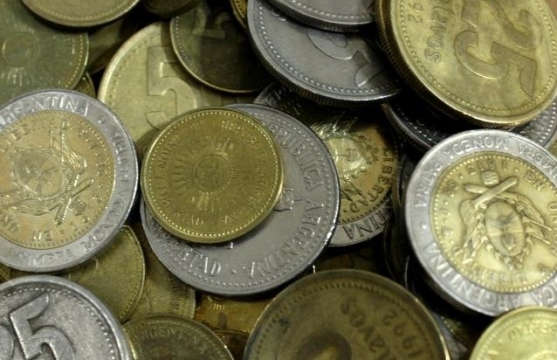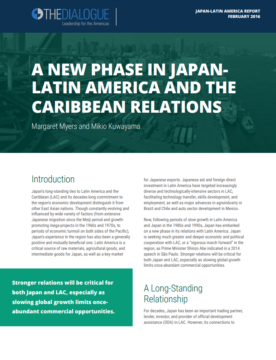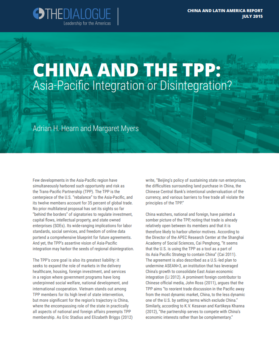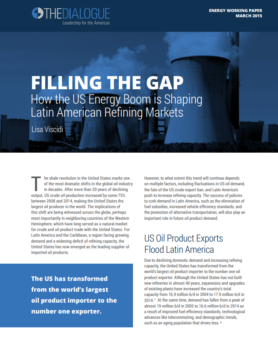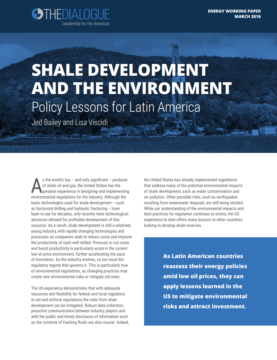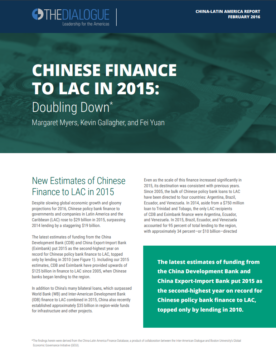
Chinese Finance to LAC in 2015
Chinese finance to Latin America neared $30 billion in 2015. The region has received upwards of $125 billion in finance from Chinese policy banks since 2005.
Chinese finance to Latin America neared $30 billion in 2015. The region has received upwards of $125 billion in finance from Chinese policy banks since 2005.
The Continued Growth of Family Remittances to Latin America and the Caribbean in 2015
Electric vehicles are a critical part of a clean transport agenda, but strong policy incentives are needed to promote widespread EV adoption in Latin America.
China is looking for new agricultural investment opportunities in Latin America, but not necessarily for large tracts of land.
Conflicts over energy and natural resources are leading to social turmoil and posing serious challenges for investment projects all over Latin America.
Facing growing competition for a shrinking US market, Latin American crude oil producers are being forced to seek new export markets.
Given their close proximity to the United States, LAC countries are well-positioned to capitalize on the surplus of US gas exports and current buyer’s market.
In the wake of the COP21 global climate talks, governments must shift attention to how they will actually follow through on the commitments made in Paris. One concept is central to achieving that goal – innovation.
In 2014, remittances to Latin America and the Caribbean grew 4%, reaching at least $62.3 billion.
Latin America has advanced significantly in terms of educational coverage, but students are not learning at acceptable levels.
For decades, Japan has been an important trading partner, lender, investor, and provider of official development assistance in Latin America and the Caribbean.
Will the TPP and RCEP be promoting of greater integration or of disintegration in the Asia-Pacific region?
The surge in unconventional oil and gas production in North America has dramatically shifted energy markets in the Americas.
Education evaluation in the region shows clear signs of progress, but further consolidation is still needed.
As Latin American countries reassess their energy policies in light of lower oil prices, there is an opportunity to apply lessons learned from the US experience to enact regulations that mitigate environmental risks, strengthen public support, and attract investment.

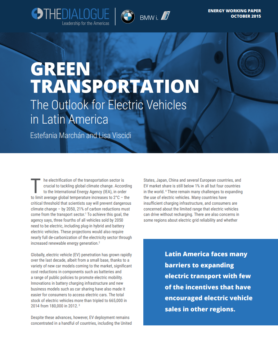
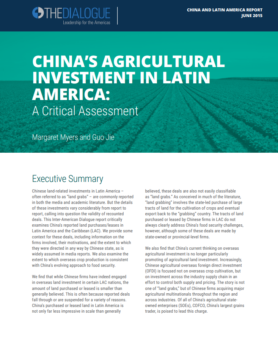
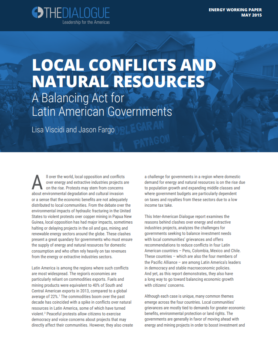
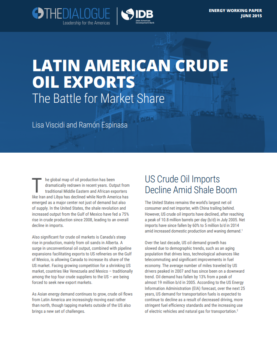
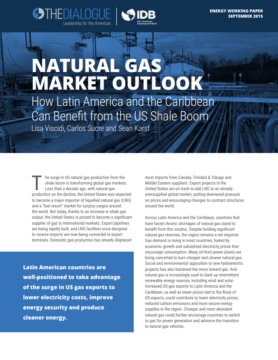
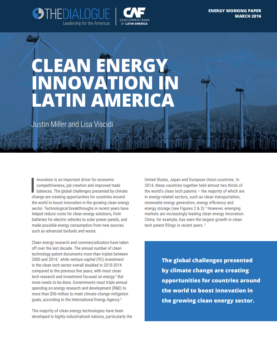 Video
Video
